Description
Psyllium seeds are the seeds of the Plantago ovata plant, a flowering herb native to parts of Asia and the Mediterranean. Known for their high soluble fiber content, psyllium seeds have been used for centuries as a natural remedy for digestive health. The seeds are small, oval-shaped, and typically light brown or yellow in color. Psyllium seeds are most commonly recognized for their ability to absorb water and form a gel-like substance, making them a popular ingredient in dietary supplements and health foods.
Appearance and Varieties:
Psyllium seeds are tiny, measuring about 1-2 mm in length. They have a smooth surface and can vary in color from light beige to brown. The seeds are often sold whole, but they can also be ground into a powder to enhance their digestibility and ease of use. The most commonly available form of psyllium is psyllium husk, which is derived from the outer layer of the seeds and contains concentrated amounts of soluble fiber.
Nutritional Value:
Psyllium seeds are rich in soluble fiber, which is primarily responsible for their health benefits. While the seeds themselves contain minimal calories, fats, and protein, the soluble fiber they provide is significant. Key nutritional components include:
- Soluble fiber: Psyllium is primarily composed of soluble fiber, which can absorb water and expand in the digestive tract, aiding in bowel regularity.
- Low in calories: Psyllium seeds contain very few calories, making them an effective way to increase fiber intake without significantly increasing caloric consumption.
Culinary Uses:
Psyllium seeds are not typically consumed directly as a food, but their derived forms, such as psyllium husk, are used in various culinary applications:
- Thickening agent: Psyllium husk can be added to smoothies, yogurt, or oatmeal to enhance texture and fiber content.
- Baking: It is often used in gluten-free baking to improve the texture of breads and pastries, acting as a binding agent and helping to retain moisture.
- Fiber supplements: Psyllium husk is commonly found in over-the-counter fiber supplements, often marketed for digestive health.
- Cereal and granola: It can be included in breakfast cereals and granola for added fiber.
Health Benefits:
Psyllium seeds offer numerous health benefits, primarily due to their high soluble fiber content. Some of the key benefits include:
- Digestive health: Psyllium is well-known for its ability to relieve constipation by absorbing water and forming a gel, which adds bulk to the stool and facilitates bowel movements. It can also help alleviate diarrhea by absorbing excess liquid in the intestines.
- Heart health: Psyllium may help lower cholesterol levels by binding to bile acids in the intestines, leading to improved cardiovascular health. Regular consumption can help reduce total cholesterol and LDL (bad) cholesterol levels.
- Blood sugar regulation: The soluble fiber in psyllium can help stabilize blood sugar levels by slowing the absorption of carbohydrates, making it beneficial for individuals with diabetes.
- Weight management: Psyllium may help with weight management by promoting a feeling of fullness and reducing overall calorie intake, as the fiber expands in the stomach.
Growing and Harvesting:
Psyllium is cultivated primarily in regions with warm climates, such as India and parts of the Mediterranean. The plant requires well-drained soil and full sun exposure to thrive. After the plants flower, the seeds are harvested, typically in late summer to early fall. The seeds are then processed to separate the husk from the seeds.
Storage:
Psyllium seeds should be stored in an airtight container in a cool, dry place to maintain their freshness and effectiveness. When stored properly, whole psyllium seeds can last for several months, while psyllium husk may have a shorter shelf life due to its exposure to moisture.
Precautions:
While psyllium is generally safe for most people, it is important to consume it with adequate water to prevent digestive discomfort or blockages. Some individuals may experience bloating or gas when first incorporating psyllium into their diets. It is advisable to start with a small amount and gradually increase intake. Additionally, those with existing gastrointestinal conditions or taking certain medications should consult with a healthcare professional before using psyllium supplements.
Conclusion:
Psyllium seeds, primarily recognized for their soluble fiber content, offer a range of health benefits, particularly for digestive and heart health. While they are not typically eaten whole, their derived form, psyllium husk, is widely used in dietary supplements, baking, and health foods. By promoting regular bowel movements and helping to lower cholesterol levels, psyllium is a valuable addition to a balanced diet, particularly for those seeking to improve their fiber intake and overall digestive health.

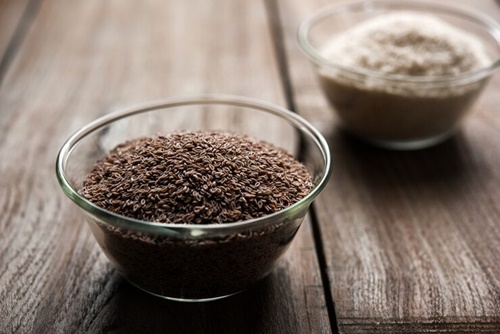
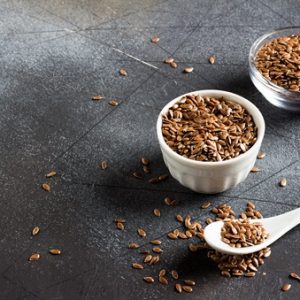
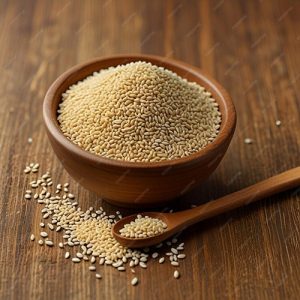
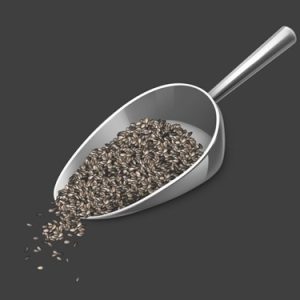
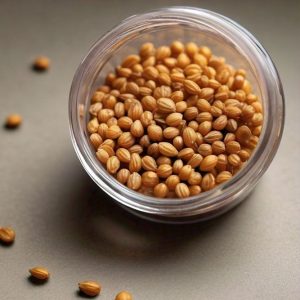
Reviews
There are no reviews yet.